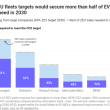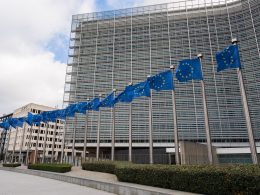The government of Pará, a Brazilian state in the Amazon, plans to consult Indigenous communities on how they will benefit from the future sale of carbon offset credits, which US companies have agreed to purchase as part of efforts to protect the rainforest.
Pará’s environmental secretariat, Semas said it would “begin a new phase of dialogue” with Indigenous peoples and other traditional communities in the region.
Scientists say preserving the Amazon rainforest is vital to combating global warming.
Last month in New York, Amazon.com and a coalition of companies committed to buying carbon credits in a $180 million deal through the LEAF Coalition, a conservation initiative established in 2021 by companies and governments, including the United States and the United Kingdom. At that time, Pará Governor Helder Barbalho stated that Indigenous and traditional communities were involved in the agreement. However, 38 Indigenous and community organizations later signed a public letter claiming they had not been adequately consulted.
According to the Pará government’s statement, “The transaction with the LEAF Coalition will be finalized in 2025, following the conclusion of this collective construction process.” Recent controversies surrounding the carbon offset market have undermined trust, with several large companies pulling back after studies revealed that many forest protection projects failed to deliver the promised emissions reductions.
Emergent, the non-profit organisation coordinating the LEAF Coalition, stated that consultations on the LEAF agreement in Pará have yet to commence. The agreement, which involves a forward purchase of credits, will only proceed after the consultation process is completed.
“We have full confidence that Pará is developing a REDD+ system with active participation from a broad range of communities and stakeholders involved in deforestation reduction,” an Emergent spokesperson said. REDD+ is a climate change mitigation strategy aimed at reducing greenhouse gas emissions by slowing, halting, and reversing deforestation.
The communities involved include Indigenous peoples, descendants of escaped slaves known as quilombolas, and family farmers. Emergent noted that government-led consultations would consist of more than 30 workshops across the state. One Indigenous organisation, the Federation of Indigenous Peoples of Pará (FEPIPA), has been actively promoting the consultations and encouraging Indigenous communities to engage.
FEPIPA leader Concita Sompré supports the sale of carbon credits as a solution for Indigenous communities, though she noted that they “do not feel fully informed.” She stressed that consultations must clarify how the benefits will be shared. “In the benefit-sharing agreement, we Indigenous peoples, alongside other beneficiaries in the state, will decide on how much each party will receive,” she stated.














